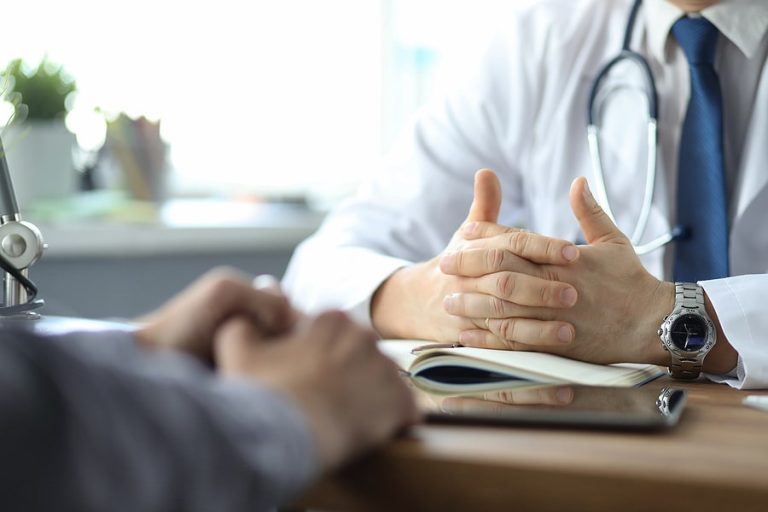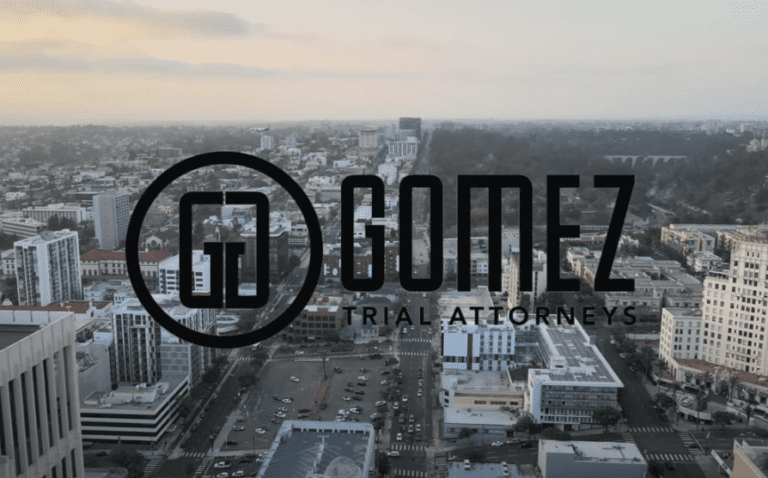Table of Contents
The word “deposition” is often used in the linguistic landscape of the law, yet most people do not know what this legal term really means. The deposition is a component of the overarching push for justice in which a party related to the case is asked questions about the event that allegedly caused the injury.
If you are involved in an auto accident and required to be deposed, don’t fret. There is no reason to be intimidated by a deposition. Embrace your opportunity to be deposed after your car accident or other personal injury and you’ll strengthen your case all the more.
Our car accident attorney is here to help with your deposition and every other step of the way toward a just outcome. Meet with our legal team, and we will detail the deposition process before you are formally deposed. This is your inside look at what depositions are really all about, their potential to shape the case results, and what happens after a deposition in a car accident case.
Defining the Word “Deposition”
Depositions are a necessary step in the legal process referred to as discovery. Discovery is each side’s opportunity to present evidence and ask questions of the opposition. Parties related to the case are deposed, meaning they are asked questions on the record, providing information that will be used as the litigation plays out. In addition to depositions, the discovery process also includes the following components:
- Requests for admissions (RFAs)
- Requests for production (RFPs)
- Interrogatories, meaning questions asked of the victim, witnesses, or other related parties
The deposition consists of sworn witness testimony. The statements of deposed witnesses are made in the form of testimony that occurs out of court. Though both attorneys can ask questions during witness depositions, the attorney representing the witness cannot provide advice during the deposition.
If the witness in question refuses to participate in the deposition, a formal request can be made in which the attorney asks the court to compel the uncooperative individual through a subpoena. If arrangements cannot be made for oral depositions, written depositions are a viable alternative. Here is a quick look at each method of deposition.
The Oral Deposition Process
Oral depositions traditionally occur with the witness being deposed in the form of spoken word. The lawyers for the parties involved in the accident or other personal injury case are present in addition to an individual with the qualifications necessary to administer oaths. The deposition is recorded through an electronic recording device or with the assistance of a stenographer.
Our personal injury law firm represents clients in California and Florida. Our California clients will find it interesting to know that witnesses can be deposed over the phone, through an online video conference, or through other electronic means. However, the party being deposed must have received the notice of deposition or a subpoena prior to the deposition date, providing him or her with enough time to prepare for the session. The side coordinating the deposition is responsible for guaranteeing all participating parties have equal access.
Depositions in Written Form
If desired, depositions can be provided in written form. This approach involves the attorney providing written questions to the deponent. The deponent responds with written answers.
The written method of deposing someone is less effective than oral depositions simply because written questions cannot be quickly followed up with secondary questions for additional clarification. The inability to pose supplemental questions after receiving a written response is a clear competitive disadvantage. As a result, most attorneys representing auto accident victims tend to favor oral depositions.
Deposition Admissibility
Courts favor witness testimony that takes place in court though deposition statements have the potential to be admissible in court. If the witness is unable to testify in court, his or her deposition might be admissible.
Admissibility of depositions in court is also possible if the witness contradicts the statement made during the deposition while in court. Moreover, if the depositions included testimony against the deponent’s personal interest, they might be admissible in court. However, depositions are usually considered hearsay and therefore, inadmissible in court.
The Post-Deposition Phase of Car Accident Cases
Once the deposition is complete, there is the potential for one of several outcomes. Both sides are given the opportunity to review the deposition transcripts or recording to ensure statements are accurately reflected in the ensuing transcription.
The attorneys will analyze the deposition to get a sense of how the statements can improve the case. There is also the chance that the answers provided in the deposition will spur the need for additional depositions or additional investigation, with the potential for even more evidence to be collected thereafter.
Requesting a Medical Exam
The aftermath of a deposition might include a request from the defendant’s attorney for the plaintiff to undergo a medical exam. Such exams are commonly referred to by the acronym IME, short for independent medical examination.
However, the insurer can select the doctor to conduct the examination including subsequent examinations, meaning those analyses will not be truly objective. There is the potential for an insurer-selected doctor to diminish the extent or severity of the alleged injury.
Opposing counsel can object to the use of a potentially biased doctor, highlighting his or her subjectivity or lack of specialization necessary for such in-depth analysis in the aftermath of a car crash. Our legal team is here to help you prepare for a medical examination that is legitimately independent.
The Potential for a Settlement
Car accident case depositions also have the potential to result in a settlement offer. Your lawyer will estimate the true value of your case, factoring in the entirety of all related out-of-pocket expenses, reductions to quality of life, and other losses causally related to the crash.
The case value calculated by your attorney is important as it facilitates the analysis of car accident settlement after deposition offers. However, you have the final call on whether to accept or reject a settlement offer.
Preparing for Trial
If your case does not reach a settlement, your lawyer will begin preparing to present on your behalf in a court of law. Prepping for a car accident or other personal injury trial requires:
- Identifying witnesses to call
- Strategizing how to present evidence
- Coordinating expert witness testimony
- Writing opening and closing statements
Every car accident injury victim should be aware that the insurer can float out a settlement offer whenever desired at any point during the trial. Such an offer might be made just prior to the start of the trial, after it begins, or shortly before a judgment.
A car accident settlement offer made after deposition made toward the end of the trial is more likely to fairly reflect the actual value of the case. The alternative is to let the case go to judgment, which might result in an award for the case’s full value along with attorney fees and additional costs of litigation. However, there is also the potential for an unfavorable ruling if the case goes to judgment.
What To Expect From the Deposition
If you suspect you will be deposed or are scheduled to be deposed, don’t panic. Our attorneys will help you prepare for deposition questions. Though this process will cause anxiety and bring back bad memories from the accident, it is necessary for justice to be served.
Your deposition requires basic information such as your name, occupation, and address. You will also be asked about your health prior to the accident. Opposing counsel will inquire about pre-existing conditions prior to the accident. The logic in asking such questions is to potentially establish a causal relationship between the pain or injury and another event aside from the car accident. Be sure to go over the entirety of your pre-existing conditions with your car accident lawyer before being deposed.
The deposition will also include information about the car crash. Opposing counsel will ask questions to learn about the accident as described by you, the victim. However, there is no need to be nervous about such questioning as your car accident lawyer will prepare you for this component of the deposition.
The details you provide during your deposition must be the same as those provided in the accident report. However, if you do not recall a subtlety when pressed by opposing counsel during deposition, be honest and state that you do not recall that specific information.
Opposing counsel will also inquire about your quality of life and working status after the car crash. This is your opportunity to highlight how your quality of life has deteriorated post-accident.
Be Self-Aware During the Deposition
The manner in which you comport yourself during the deposition is of the utmost importance. Though the deposition won’t occur in court, you must recognize the formality of the event. The testimony you provide during the deposition is sworn, meaning you are giving your word that you are telling the truth.
Be professional, wear formal clothing, and minimize the small talk. Focus on the deposition questions, respect the fact that time is limited, and maintain a professional demeanor throughout the deposition. When asked a question, address it clearly and cogently. Do not digress or offer other potential responses that may lead to additional questions.
Communicate with confidence when responding to deposition questions to reinforce the merit of your case. Take your time, breathe deeply, and always be honest as the deposition is made under oath. A lie told while under oath has the potential to result in a case dismissal.
The Presence of an Attorney at Your Deposition
An attorney must be present when you are preparing for the deposition, as the answers you provide have the potential to make or break your case. The plaintiff’s attorney will also depose witnesses, setting the stage for a favorable case outcome. If necessary, your attorney will raise objections to questions asked by opposing counsel during the deposition.
In addition to helping with your deposition, personal injury attorneys also provide overarching legal guidance. The best personal injury attorneys proactively highlight their success rate in similar cases. Moreover, elite personal injury attorneys comprehensively analyze potential defendants who oftentimes have shared liability.
Attorneys are also responsible for the following:
- Timely filing of paperwork in the proper court jurisdiction
- Collecting evidence
- Examining witnesses
- Calculating case valuations for comparison with potential settlement offers
Even the seemingly subtle components of the litigation process, such as delivering opening and closing statements, have the potential to make an imprint on the case, including the judge.
Your attorney’s work is not complete when the case ends. The industry’s best go the extra mile to assist victims like you in collecting a much-deserved settlement or award.
FAQs
What is the purpose of a deposition in a lawsuit?
The deposition records statements from witnesses and other related parties who are under oath. The information revealed during depositions is analyzed by attorneys for use in court.
How long does a car accident deposition last?
Most car accident depositions are finished within a couple of hours or less. Though some depositions will take up several hours or an entire day, few require multiple days.
How do you know if your deposition went well?
Meet with your attorney to review the information divulged in your deposition. An attorney’s analysis of your statements will help you better understand if the question and answer session went well.
How long does a car accident settlement take after a deposition?
The length of time necessary for the opposition to offer a settlement differs by case. In some cases, settlement offers are made immediately after depositions as deposed parties reveal information pertinent to the case. There is also the potential for a settlement offer to be made halfway through the trial. Moreover, there is the potential for no offer to be made at all.
What happens at a deposition?
Opposing counsel has the opportunity to ask questions of witnesses and other parties related to the case. The deposed party’s statements are recorded for attorney analysis and potential use in court.
Schedule a Consultation With John Gomez, Esq.
Have you been injured in an auto accident or other incident? If so, the outcome of your case depends on the attorney you select. Our car accident attorney, John Gomez, has extensive experience handling auto accident and personal injury claims.
Reach out to us today to speak with an attorney, schedule a consultation, and begin your quest for financial compensation. We have offices in California and Florida. If you are in the San Diego area, you can reach us at (619) 237-3490. We also have offices in Riverside, El Centro, Temecula, and Solana Beach.







